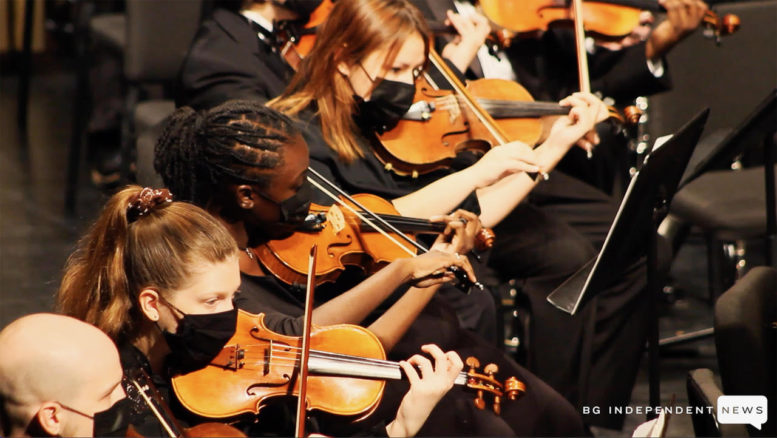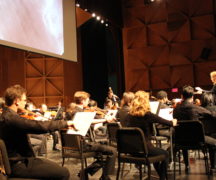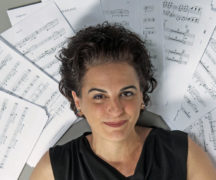By DAVID DUPONT
BG Independent News
When an orchestral musician arrives to study at the BGSU College of Musical Arts they have to be prepared not only to play Brahms, but also a living composer’s deep ruminations on the master’s work.
With that comes an expectation that both the classic and contemporary will be played at a highest level. They may very well be called to record the contemporary piece, and that may be its only recording.
BGSU’s place in the firmament of contemporary music is well established, and that comes to fruition each October when it hosts, through the auspices of the MidAmerican Center for Contemporary Music, the New Music Festival featuring the luminaries of contemporary music.
[RELATED VIDEO: BGSU New Music Festival celebrates the sounds of today]
The day after the four-day festival’s closing Saturday night concert, the Bowling Green Philharmonia, conducted by Emily Freeman Brown, gathers for a recording session of some of the orchestral work that was performed.
Since 1999, those recordings have been issued by Albany Records in The Composer’s Voice series. This spring, volume 8 of the series was released featuring performances from 2014 through 2018.
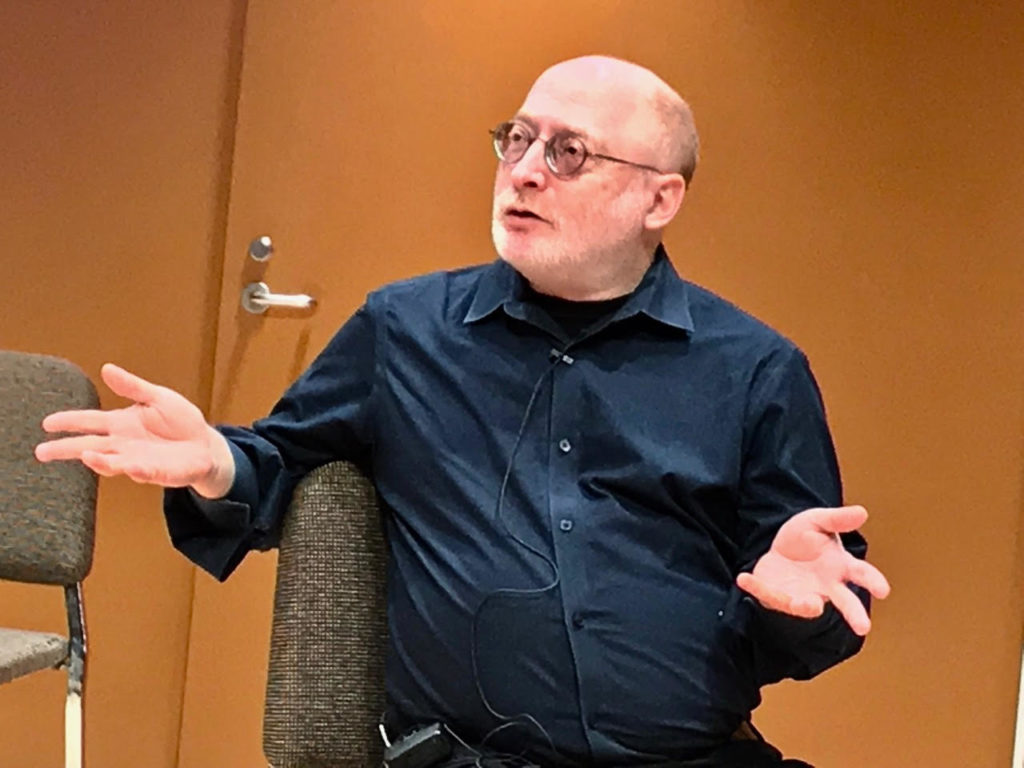
The title of the series refers to the structure of the albums. Each musical performance is prefaced by a short spoken introduction, almost always by the composer. They speak to the inspiration and content of the piece, giving the listener an insight into what is often perceived as the daunting world of new music.
Volume 8 features pieces by six composers – Aaron Jay Kernis, BGSU Distinguished Artist Professor Marilyn Shrude, Dalit Warshaw, Richard Cornell, Martin Kennedy, and David Liptak.
The album opens and closes with musical evocations of a celestial nature.
Kernis’ “On the Wings of Light” looks to the Milky Way with brash, concert band colors while Liptak’s “Northern Lights” looks upward into the Minnesota night sky with darting strings and insistent horns, punctuated by percussion.
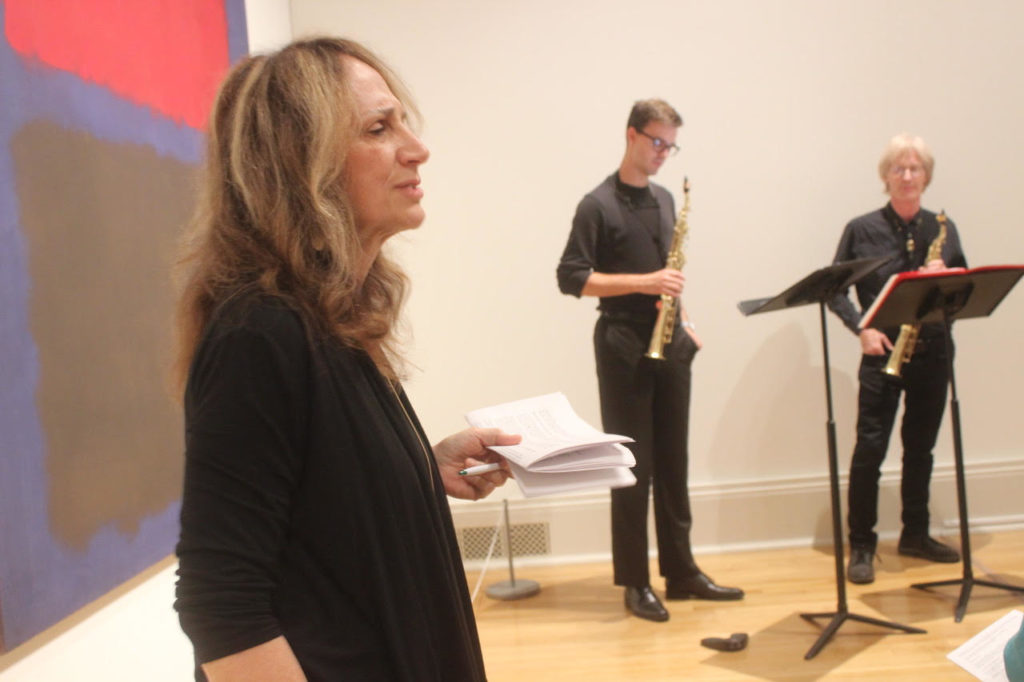
Shrude draws on the ancient Book of Hours and Rainer Maria Rilke, which look heavenward. A large part of her inspiration for “Libro d’Ore,” a one-movement violin concerto, though, comes closer to home.
She composed it with two violinists in mind: Ioana Galu, who received her doctorate in contemporary music at BGSU, and Shrude’s daughter Maria Sampen. Galu does the honors here. “Libro d’Ore” begins and ends with a whisper. In between the soloist traverses an ethereal soundscape.
This is quite different from the soundscape that professor of trombone Brittany Lasch travels through as soloist on Kennedy’s one-movement concerto “Theme & Variations.” The theme was based, the composer said, on the sound from a car horn on the New York City street. Not hard to imagine the trombonist dodging through rush hour traffic, maneuvering with slips, and sides, and declarative runs.
Cornell’s “Sinfonia” is also inspired by a trip, staring in the west with a fanfare and a rush before hitting the more serene landscape before a triumphal arrival.
Warshaw’s piece is also inspired obliquely by her hometown, New York City. When she moved back she found herself returning to her early love of Brahms. A pianist, she originally composed “Responses” for solo piano, before orchestrating by request for the BG Philharmonia. This is not based on themes by Brahms but rather reflects Warshaw’s delving into its emotional depths. That includes, in the second movement, a rather playful, even jazzy episode.
As with everything here, the piece rewards repeated listening, and whets the appetite for what will come two months from now when BGSU again takes its place at the center of the New Music firmament.
***

